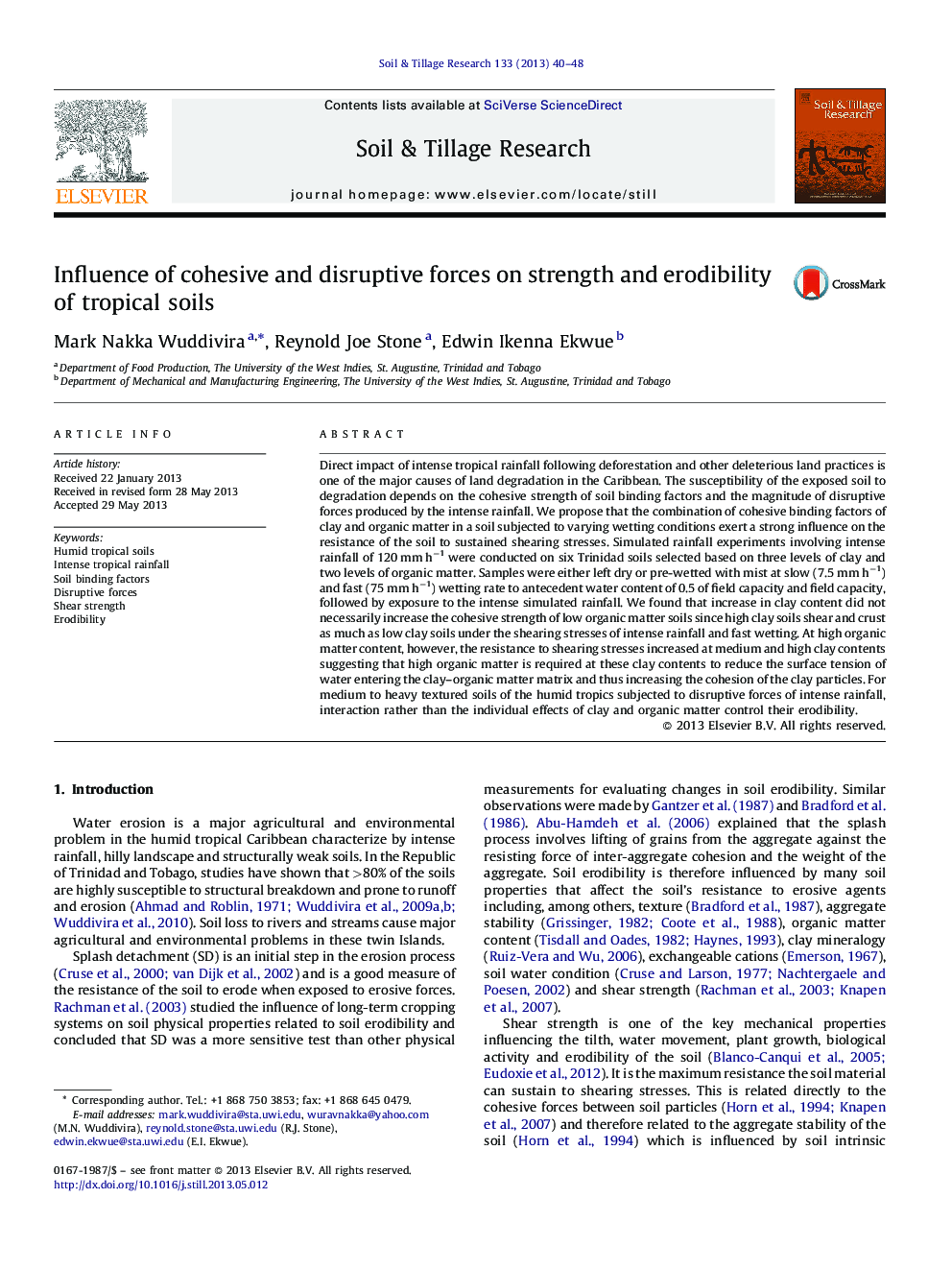| Article ID | Journal | Published Year | Pages | File Type |
|---|---|---|---|---|
| 6773553 | Soil and Tillage Research | 2013 | 9 Pages |
Abstract
Direct impact of intense tropical rainfall following deforestation and other deleterious land practices is one of the major causes of land degradation in the Caribbean. The susceptibility of the exposed soil to degradation depends on the cohesive strength of soil binding factors and the magnitude of disruptive forces produced by the intense rainfall. We propose that the combination of cohesive binding factors of clay and organic matter in a soil subjected to varying wetting conditions exert a strong influence on the resistance of the soil to sustained shearing stresses. Simulated rainfall experiments involving intense rainfall of 120 mm hâ1 were conducted on six Trinidad soils selected based on three levels of clay and two levels of organic matter. Samples were either left dry or pre-wetted with mist at slow (7.5 mm hâ1) and fast (75 mm hâ1) wetting rate to antecedent water content of 0.5 of field capacity and field capacity, followed by exposure to the intense simulated rainfall. We found that increase in clay content did not necessarily increase the cohesive strength of low organic matter soils since high clay soils shear and crust as much as low clay soils under the shearing stresses of intense rainfall and fast wetting. At high organic matter content, however, the resistance to shearing stresses increased at medium and high clay contents suggesting that high organic matter is required at these clay contents to reduce the surface tension of water entering the clay-organic matter matrix and thus increasing the cohesion of the clay particles. For medium to heavy textured soils of the humid tropics subjected to disruptive forces of intense rainfall, interaction rather than the individual effects of clay and organic matter control their erodibility.
Keywords
Related Topics
Physical Sciences and Engineering
Energy
Renewable Energy, Sustainability and the Environment
Authors
Mark Nakka Wuddivira, Reynold Joe Stone, Edwin Ikenna Ekwue,
